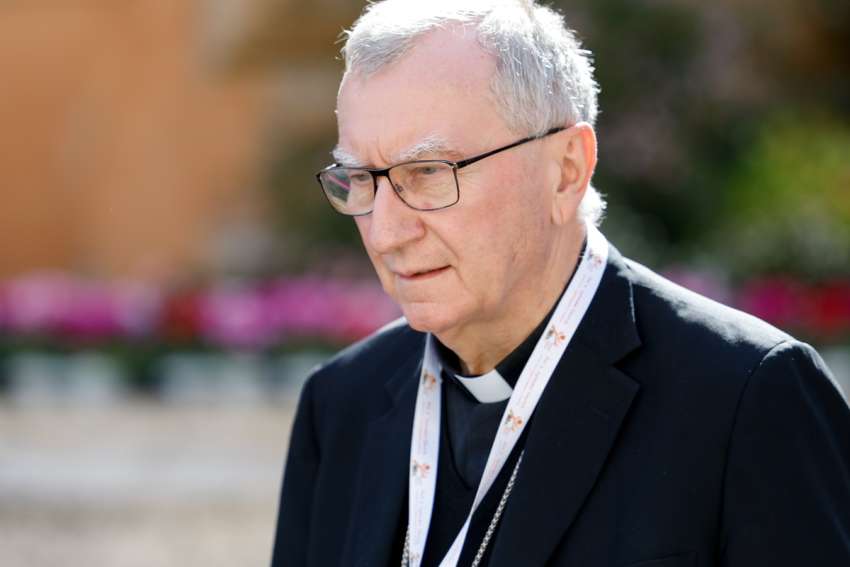"It is a truly disturbing prospect," the cardinal told reporters May 30 in Milan, on the sidelines of a book presentation at the city's Ambrosian Library, according to Vatican News.
The risk is real and should cause concern for "every person who cares about the fate of our world," he said.
The cardinal's comments came in response to a growing number of countries considering lifting or amending restrictions on Ukraine's use of weapons from Western nations to strike inside Russia.
Jens Stoltenberg, secretary general of NATO, said May 30, "I believe that time has come to (re)consider some of these restrictions to enable the Ukrainians to really defend themselves," according to The Associated Press.
"This is a war of aggression launched by choice by Moscow against Ukraine," he said, and the right to self-defense "includes also striking legitimate military targets outside Ukraine." NATO foreign ministers were meeting in Prague May 30-31.
New reports published late May 30 said U.S. President Joe Biden agreed Ukraine could use some U.S.-supplied weapons to strike inside Russia but only to defend the city, Kharkiv, a Ukrainian city that lies just 12 miles from the Russian border and that has been the target of a major Russian assault since May 10.
And Germany announced May 31 it will allow Ukraine to use German weapons to strike targets in Russia, joining other NATO members in easing restrictions on what Ukraine can do with donated military weapons.
Leaders opposed to allowing Ukraine to use foreign weaponry to launch attacks on Russian soil are concerned such a move would be seen as a provocation and lead to Russia widening the conflict.
Cardinal Parolin told reporters the Vatican is continuing with its humanitarian efforts, especially concerning the return of Ukrainian children forcibly taken from their homes and brought to Russia. An effort begun last year "continues, not very rapidly, but it is bearing fruit," the cardinal said.
Responding to a question about upcoming elections where voters in European Union member states will elect members of the European Parliament, the cardinal said the Catholic Church "is never partisan" and that "we cannot express ourselves for or against one or the other."
He emphasized the importance of citizens "participating, casting one's vote, because this means implementing and exercising democracy."
However, at the same time, people need to "take into account the candidates' values that are close to, aligned with Catholic sensibilities," he said. "I would say that these are the principles to which we should adhere as far as we are concerned."


